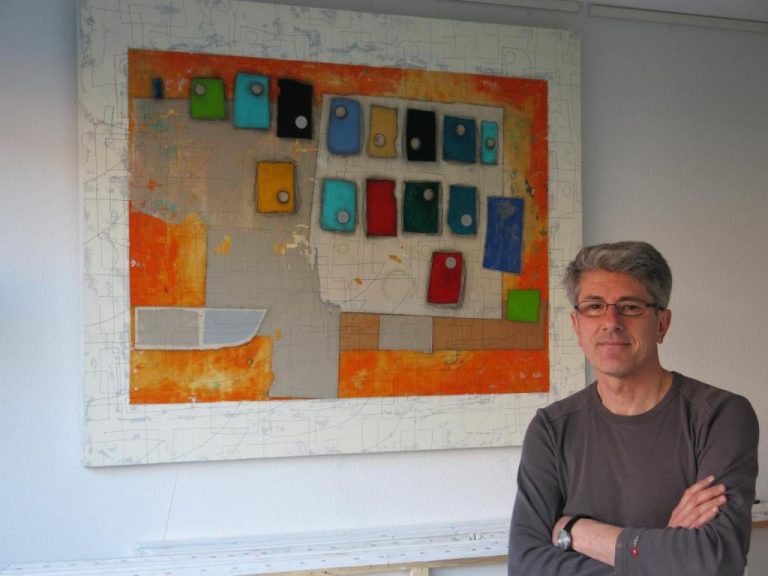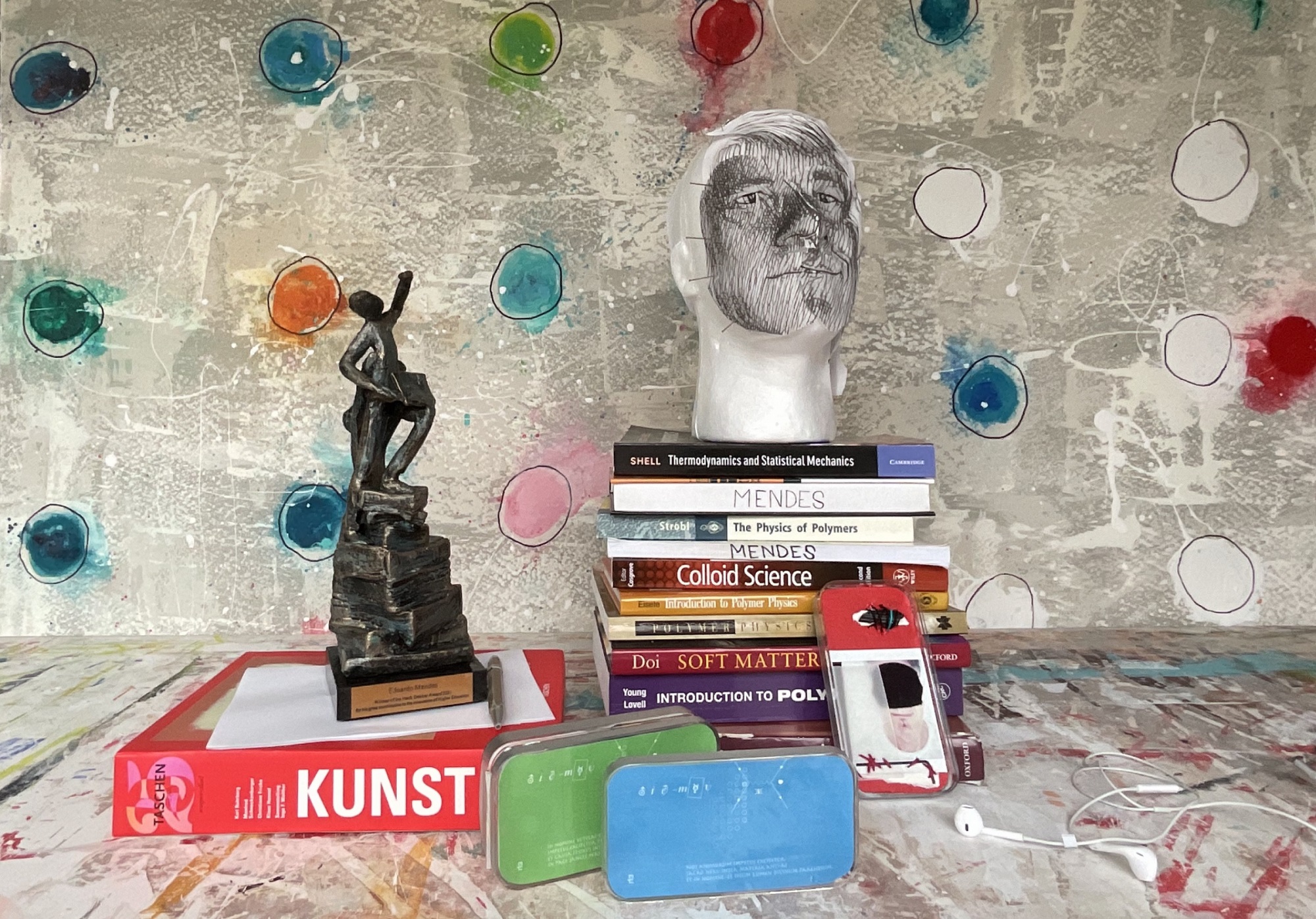Dr. Eduardo Mendes recently received the Henk Dekker Award for innovatively using art to educate and better prepare engineers.
Eduardo Mendes explained: “It is my face on paper on the foam head. At the end, it is me looking much further away from the place where my study and research brought me to.” (Photo: personal collection)
English only
“Our engineers usually learn about processes. They are trained in finding the best processes to achieve a goal in a more efficient way. Our courses are heavy and the students have less and less connection to or time to really understand the world that they live in which is more and more complex every day. I created a space where students are able to discover who they are and grow without any pre-determined behaviour or concepts imposed by courses or faculties. Using ‘making art as an artist’ rather than talking about art or art history, they can reconnect to themselves and to the world in terms of ethics, sustainability, and many other important topics of our time not only because it’s in the curriculum but because it’s a need for society. I wanted to bring more of that human side that they can connect to into our education. That has been my real goal from the beginning and it translates into this awareness of the self and of the world, triggering a self-review on responsibility and leadership.
It all started with Art, Empathy & Ethics as a master’s course and then two years later it crystallised into a specialisation of the bachelor’s honours programme that is called Awareness & Culture. The specialisation now consists of four art-embedded learning courses for which we expanded the methodology of Art, Empathy & Ethics.
‘Many students would like to have more options like these’
From the Board to the faculties, there is a lot of willingness at TU Delft to have more of these sorts of spaces for personal growth, but we are structured in a way that courses have very little space for electives. Such courses are not yet part of the curriculum in the sense that the faculties are not yet offering these courses as an option in their regular programmes. Many people would like to have more options like these and have a series of courses that would be offered throughout TU.
It looks a little bit like liberal arts in a sense, but the novelty is that I managed to find a new algorithm, if you can call it that. I read a lot of philosophy papers on technology and follow many contemporary artists that make installations or artwork with science and technology, challenging the borders of the acceptable and questioning how technology is being used in society. Philosophers, sociologists, and human scientists get inspired by those artists to the point that their work gets deeply influenced by them. What usually happens in the academic world is that people talk about art, however, engineers, philosophers, sociologists and anthropologists don’t make art themselves. Their connection to art is exclusively through their brains.
What I did was the inverse: let the students make art, let things pop up from the inside and from this art process they will generate ethical or societal questions. From those questions they will write assignments on ethics, for example. The idea is that rather than discussing art, we make it. The way they live the questions generated from art is therefore completely different than simply having a discussion about it.
I’m a physicist and I have mostly focussed on my research, which is exclusively technical. This course came from my guts, it came as a need. I understood that by feeling what I felt while making art I could extrapolate to better understand the impact of technology on society. So, it’s from the inside out. While people are learning science, they have theories, they write about them, they start from the other side, from their brains. Once I understood the art process by living it, I started to self-educate, reading papers and books on transformative learning to understand those theories. The integration of making art as an artist in our regular curricula to better prepare engineers, making them more aware of their responsibility and leadership in society, would be more proof that TU Delft really leads in higher education.”
- Also read: Avocations: The paintings of Dr. Eduardo Mendes

Eduardo Mendes.
Want to be featured in Humans of TU Delft? Or do you know someone with a good story to tell? Send us an e-mail at humansoftudelft@gmail.com
Heather Montague / Freelance writer



Comments are closed.